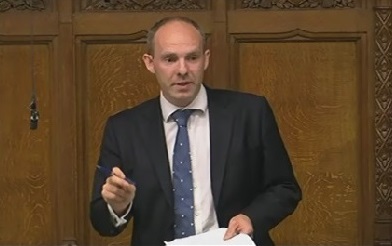
Britain’s economic plan is working, but the job is not yet done – we need to keep taking the difficult decisions to secure the economy for the long-term. The biggest risk to Britain comes from those who would abandon the plan – and borrow and spend more. Our long-term plan will secure a responsible recovery for all.
The Autumn Statement shows the plan is working:
- Growth upgraded. GDP forecasts are revised up from 0.6% to 1.4% in 2013 and from 1.8% to 2.4% in 2014.
- Employment up. Forecasts of employment growth have been revised up from staying flat to rising by 400,000 this year. Unemployment is predicted to fall to 7% in 2015 and 5.6% in 2018.
- Cutting the deficit. The deficit was 11% in 2009/10. It is projected to fall to 6.8% this year – lower than the 7.5% forecast in March. It will fall to 5.6% in 2014/15 and 4.4% in 2015/16. By 2018-19 the OBR expects to run a surplus.
- Debt falling faster. Debt this year will be 75.5% of GDP - £18 bn lower than forecast in March. It falls one year earlier in March 2016/17 than forecast in March.
The Autumn Statement sets out the next steps in our long-term economic plan to help hardworking people:
- Reducing the burden of business rates. This is help for the high street and will support businesses to create more jobs.
- Help for the high street: up to £1,000 allowance in 2014/15 for retail premises with a rateable value of up to £50,000 – including shops, pubs, cafes, and restaurants.
- Capping the increase in bills to 2% in 2014-15 – businesses were expecting a 3.2 % rise.
- Extending the doubling of the Small Business Rates Relief to April 2015.
- A reoccupation relief for 18 months with a 50% discount for new occupants of retail premises empty for a year or more.
- Freezing fuel duty until 2015. Fuel duty will be frozen for the remainder of the Parliament. It will be 20 ppl lower by the end of the Parliament compared to plans inherited from Labour. This saves the average motorist £11 every time they fill up their tank.
- Youth package:
- Scrapping employers’ National Insurance for under-21s. Up to earnings of £813 per week (equivalent to the higher tax rate).
- Giving young people the skills they need to succeed. Jobcentre Plus will help 16 and 17 year olds not in work find an apprenticeship or a traineeship. There will also be a pilot so anyone aged 18 to 21, who does not have basic maths or English, has to undertake training immediately or lose benefits.
- A university place for anyone with the right grades. We will abolish the arbitrary cap on student numbers.
- Freezing rail fares. We are limiting the cap on average regulated rail fare increases to RPI for 2014.
- Recognising marriage in the tax system. In future the allowance will increase along with the personal allowance.
- £50 off energy bills. Households will save an average of £50 on their energy bills.It reduces the impact of government policies on energy bills, while maintaining support for the poorest families.
- Free school meals. We’ll provide funding for free school lunches for all state-funded pupils in reception, yrs 1 & 2, and disadvantaged students in 6th form colleges from Sep 2014. We’ll provide capital funding to increase capacity in school kitchens.
- Clamping down on tax avoidance and evasion. This will raise over £6.8 billion across the next five years.
The Autumn Statement entrenches Britain’s commitment to sound public finances.
- Capping total welfare spending. This will not include the Basic State Pension or the most cyclical of jobseekers’ benefits.
- Running a surplus in the good years so we fix the roof while the sun is shining. MPs will vote on a new Charter for Budget Responsibility in December 2014. This will include plans to run a surplus in the good years, reduce the national debt, and look at a shorter and more binding fiscal mandate.
- Setting the principle for the state pension age. The Pensions Bill, currently in Parliament, will put in place reviews of the pension age every five years.The Autumn Statement sets out the principle of those reviews - that people should spend up to a third of their adult life in retirement. It suggests an increase to 68 in the mid 2030s. Future taxpayers will save around £500 bn.
- Controlling Whitehall spending. Contingency reserves will be reduced by £1 billion this year and departmental budgets by a similar amount in the next two years. Protections for the NHS, schools, security agencies and HMRC will apply. Local government will be exempt in return for freezing council tax.
Justin Tomlinson MP said: "We are seeing right here in Swindon how the economy is recovering and growing. New jobs, new businesses and new investment. We have took action to rescue the broken economy and we are rightly building a long-term sustainable recovery, always putting hard working people first."

